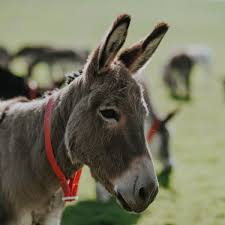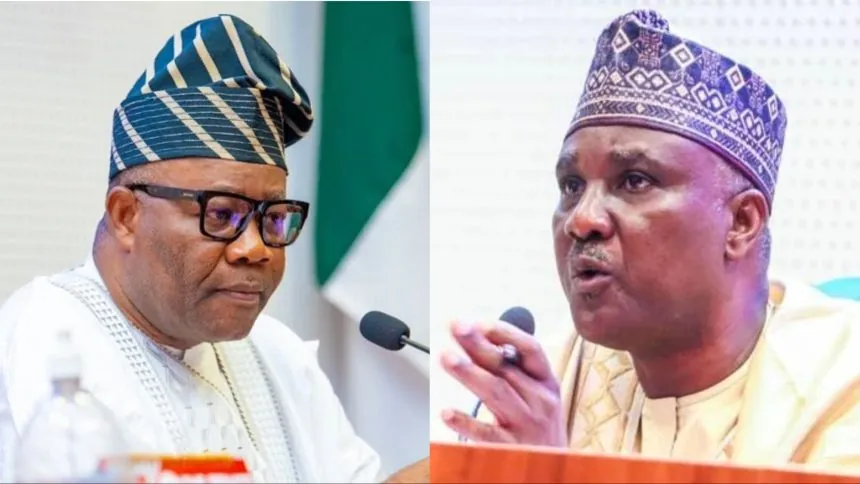Bill seeking to regulate slaughtering of donkey in Nigeria will create loss of business and investments for three million Nigerians, the Donkey Dealers Association(DDA) have said.
Their misgiving against the Bill came to the fore when the National President of DDA, Mr Ifeanyi Dike made the remark at a one day Public hearing on eight bills for the agriculture sector.
This was as the house of Representatives committee chairman on Agriculture, Mohammed Datti, earlier in his remarks said the bill is seeking to prohibit entirely, the killing and export of donkeys to China, saying that China was using the donkey skin for their traditional medicine.
“This animal is facing extinction and it’s an animal you cannot breed in large number because of the very low rate of fertility.

“The major beneficiary in this trade is the donkey breeding merchants in China with a profit of 293 million dollars in 2016 to the detriment of the rural people of Africa and Caribbean.”
The public hearing was organised by the Senate Committee on Agriculture and Rural Development.
The bill on Donkey Slaughter, Regulation and Export Certification Bill 2020, sponsored by Sen. Yahaya Abdullahi is seeking to regulate the slaughter of donkeys.
It also seeks to establish the breeding and ranching of donkeys through the export certification value chain, to mitigate extinction of donkeys given their Aesthetics, Ecological, Educational, Historical, Recreational and Scientific Value to the nation.
Dike said outright ban on slaughtering of donkey was not a solution to the envisaged extinction of donkeys in Nigeria.
“We should know that outright ban as proposed by this bill will create some powerful smuggling syndicates who are bent in getting the donkey derivatives for export to China thereby sabotaging the economy.
“The blanket ban on donkey killing and export of its derivatives as a result of morbid fear of its extinction has failed to realise that regulation, ranching and breeding is the solution.
“Cows which we slaughter more than 50,000 on daily basis as meat has not gone into extinction, so how can a donkey with the same gestation period as cow into extinction, we should encourage breeding and ranching,”he said.
Dike said the dealers have invested heavily over the years and had also signed a Memorandum of Understanding (MOU) with National Animal Production Research Institute (NAPRI) for the breeding and production of five million donkeys within a space of 10 years.
“We took this action to increase the local population of donkeys in Nigeria to avoid its extinction.
“We state categorically that anyone or group of person who support, the blanket ban on donkey killing is deemed enemy of our businesses, enemy to Nigeria economy as well as indirectly supporting the Chinese.”
He said donkey regulation, breeding and ranching policy would create millions of job opportunities starting from donkey farmers, traders, slaughter house, Logistics and export.
“Each of these segments is very important in revenue generation into our economy by way of taxation and levy collections right from the Local Governments, to the states and to the Federal Government.
“It is projected that donkey businesses if properly regulated is capable of injecting 10 billion naira annually to our economy. “
Dike urged the Senate to consider the plight of over three million Nigerians to be out of jobs and businesses, if the bill was allowed to pass.
Mr Marcel Okpara, a legal practitioner and a human rights activist told NAN, that the bill was a calculated attempt to put some Nigerians out of business and from earning a living,adding that the business of donkey slaughtering had been in existence for 70 years.
He said the dealers were more worried about the extinction of donkey, hence have resorted to breeding more donkeys through establishment of ranching systems to keep them in business.
Okpara said he was not against having a legal framework to regulate the business of donkey, but advised that the act should be framed to protect Nigerians in the business of donkey across its value chain .
Earlier, Chairman of the Committee, Sen. Bima Enagi said the public hearing was designed to receive inputs from stakeholders and the general public with a bid to come up with relevant legislations that would promote agriculture in Nigeria.
“You will recall that these important bills were read first and second, time in the hallowed Chamber of the Senate as per the practice.
“Cursory look at the bills would reveal to us that, they are out to serve similar goals and purpose, ensure food security and healthy diet for our citizens, create jobs, development of the sector through various value chains and to reposition the agricultural sector in our economy.”
He said the committee would via the Senate leadership would reposition the agricultural sector to increase its contribution to the Gross Domestic Product (GDP) and achieve the objective of the global food organizational policies.
The eight bills considered at the public hearing, includes:
Nigerian Research Institute of Fisheries and Aquaculture, Bakassi (Establishment) Bill, 2020.
An act to provide a Legal Framework for the Cassava Inclusion policy of Federal Government, to Encourage Cassava farming, create a sustainable market for the produce and for other matters connected therewith, 2022National Food Safety and Quality Bill, 2020
Donkey slaughter Regulation and Export Certification Bill, 2020
National Veterinary Research institute, Gombe (Establishment) Bill 2021
Federal College of Agriculture, Ogoja, Criss River State (Establishment) Bill 2022
Federal College of Agriculture, Ise-Orun, Ekiti State (Establishment) Bill 2022
Federal Collegeof Agriculture, Technology Opialuojapo, Benue State (Establishment) Bill 2022




